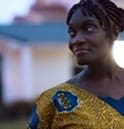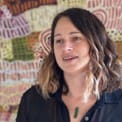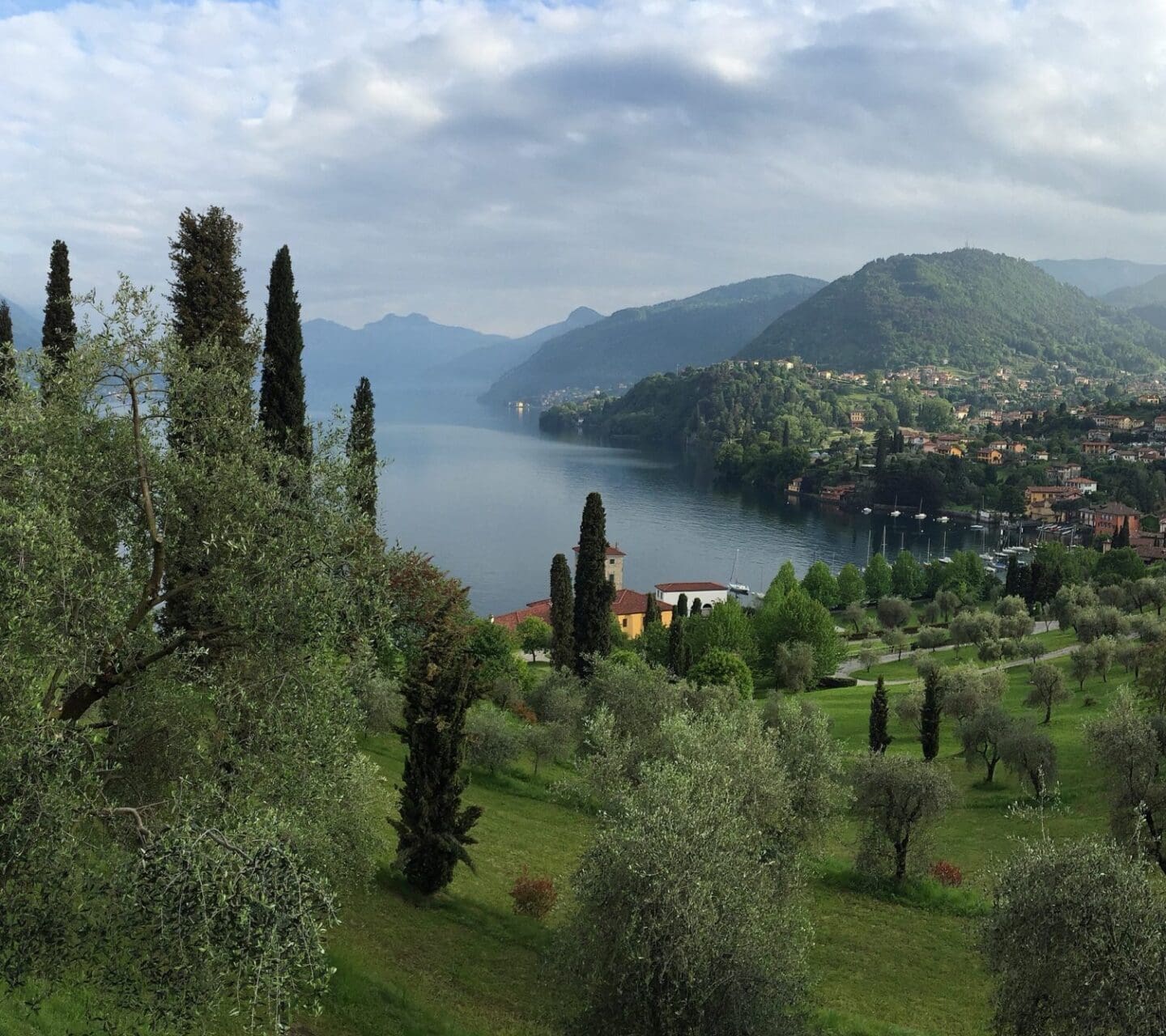The women of the Lost (and Found) in Transition residency share their reflections on coping during, and thriving beyond, transitions in leadership.
 Theo Sowa is a women’s rights activist and independent advisor. Based between Ghana and the U.K., she headed the African Women’s Development Fund (AWDF) from 2011 until 2020 and currently sits on several civil society boards – some philanthropic and others sector-specific – around women’s rights. After stepping down from the AWDF, she works on philanthropic advocacy and continues to be an advocate for feminist human rights.
Theo Sowa is a women’s rights activist and independent advisor. Based between Ghana and the U.K., she headed the African Women’s Development Fund (AWDF) from 2011 until 2020 and currently sits on several civil society boards – some philanthropic and others sector-specific – around women’s rights. After stepping down from the AWDF, she works on philanthropic advocacy and continues to be an advocate for feminist human rights.
 Swatee Deepak works with foundations in strategy development and design, with families of wealth on their redistribution strategies. Previously she was Director of the With and For Girls Collective, the world’s only participatory fund by and for adolescent girls, and Executive Director of Stars Foundation. Swatee is co-founder of Closer Than You Think, and Shake The Table. She is a Board Director of the Global Fund for Children and EMpower – The Emerging Markets Foundation and a Practitioner in Residence for LSE’s Marshall Institute.
Swatee Deepak works with foundations in strategy development and design, with families of wealth on their redistribution strategies. Previously she was Director of the With and For Girls Collective, the world’s only participatory fund by and for adolescent girls, and Executive Director of Stars Foundation. Swatee is co-founder of Closer Than You Think, and Shake The Table. She is a Board Director of the Global Fund for Children and EMpower – The Emerging Markets Foundation and a Practitioner in Residence for LSE’s Marshall Institute.
 Lisa VeneKlasen is an activist, strategist, writer, and network-builder working for transformational social, economic and gender justice efforts worldwide. She is the Founder and former executive director of Just Associates (JASS), a transnational network anchored in the global south and working at the country and regional level in Mexico, Central America, Southern Africa, and Southeast Asia.
Lisa VeneKlasen is an activist, strategist, writer, and network-builder working for transformational social, economic and gender justice efforts worldwide. She is the Founder and former executive director of Just Associates (JASS), a transnational network anchored in the global south and working at the country and regional level in Mexico, Central America, Southern Africa, and Southeast Asia.
 Ruby Johnson is a feminist activist, strategist, writer, and practitioner based between Oaxaca, Mexico and Sydney, Australia. She was previously co-executive director of FRIDA | The Young Feminist Fund, and currently co-leads the Global Resilience Fund and works with a range of feminist funders and organizations. She sits on the Women Fund Asia Australian Board and is a member of Comic Relief’s Social Impact committee. She also co-founded Closer Than You Think with Swatee and Devi Leiper O’Malley.
Ruby Johnson is a feminist activist, strategist, writer, and practitioner based between Oaxaca, Mexico and Sydney, Australia. She was previously co-executive director of FRIDA | The Young Feminist Fund, and currently co-leads the Global Resilience Fund and works with a range of feminist funders and organizations. She sits on the Women Fund Asia Australian Board and is a member of Comic Relief’s Social Impact committee. She also co-founded Closer Than You Think with Swatee and Devi Leiper O’Malley.
In 2022, the Rockefeller Foundation invited Theo, Swatee, Lisa and Ruby to participate in a group-based residency to work on a project they called Lost (and Found) in Transition. This group also included Devi Leiper O’Malley, Emilliene Auline De Leon, Pamela Shifman and Hope Chidugu. The project was concerned with the lessons to be learned from transitions in leadership within women’s rights and feminist organizations, as well as in wider civil society. Each member of the group brought examples of untapped stories and wisdom about feminist approaches to organizational change. Here, the feminist change-makers reflect on what they discussed during their time at the Bellagio Center and how it corresponds to their respective practices.
The collective fellowship was an experiment, allowing a group of people to look at their individual experiences, and merge them together in a way that was relevant to all our work in feminist leadership and organizational change.
Lisa VeneKlasenActivist, Strategist, Writer, and Network-Builder
Swatee: As a resource activist, I get to work with incredible organizations that empower young people, girls, women, and marginalized groups to make a difference in their communities. I’m fortunate to sit close to where decisions around resources and money happen, whether it’s with individuals, families, or foundations. I work on how to shift those resources into the hands of social justice and grassroots movements through the lenses of gender, racial or economic justice. I had heard of colleagues doing residencies at Bellagio; I remember saying to a mentor, over ten years ago, “I wonder if I’ll ever get to go there.”
Lisa: I also have a long history of working directly with social movements and supporting the leadership of frontline movements in Latin America, Southern Africa, and globally. I’ve worked very closely in support of feminist leadership in those movements. Through our distinct leadership roles in global feminist organizations, we converged and collaborated in many moments. After we stepped down during the lockdown phase of Covid, we found each other again to explore new ways of collaborating.
Ruby: My work is focused on building connections and strengthening accountability between social movements and funders, in particular emergent girl and young feminist-led movements. I’m also very into creative work and storytelling, working with artists, looking at narrative change, and documenting collective knowledge to challenge what we understand as “evidence.” I was drawn to the Bellagio residency as an opportunity to be in intergenerational dialogue about our experiences of feminist leadership transition and to dream together of what is possible at this moment.
In civil society, when people transition out of leadership roles, it can be quite a lonely experience. There are many lessons to be learned.
Theo SowaWomen’s Rights Activist and Independent Advisor
Theo: Like other women in our collective residency, I’ve just transitioned out of an executive leadership role. In civil society, when people transition out of leadership roles, it can be quite a lonely experience. There are many lessons to be learned. The eight participants in the residency had been meeting together regularly through the internet, to talk and look at how we could share some of our learning around feminist leadership transitions with people in our sector or similar sectors. Then we had the invitation to Bellagio.
Swatee: Yes, and this was a real demonstration of a beautiful, feminist collective energy because we were already connected. As you mentioned, Theo, we wanted to approach this residency as a team because our sector never gets a chance to come together like this. It was great that we were able to undertake the residency as a group. That was a real demonstration of the kind of feminist principles that a lot of us work and live by. We’re all big fangirls of legendary activists who were also part of the Center’s history, be it Maya Angelou, Toni Morrison, or Ruth Bader Ginsburg. What might they have dreamed or discovered from coming together at Bellagio?
Lisa: The collective fellowship was an experiment, allowing a group of people to look at their individual experiences, and merge them together in a way that was relevant to all our work in feminist leadership and organizational change. The experience legitimized us and placed our knowledge in that canon. We wove a lot of poetry into our time together and had readings to start each session. I think that created some sort of formative, creative aspect to the experience.
Swatee: Many of those poems come from activists we know. People who have lived through violence or grief or destruction. So many of the poems started in spaces that were about that kind of darkness and about moving from that, finding strength, community, and resilience. And it just felt so powerful to draw on those inspirations.
Lisa: I remember reading something about transitions. I saw it as a generative possibility – recognizing there’s a sense of loss when you leave a place. In leaving, you search for belonging.
Swatee: There was a session about our own deeply personal transition stories. We know that, within leadership, you’re on such isolated journeys. What stood out was when we each shared our vulnerable and invisible transition stories. Often leaders of organizations have a very public transition but this sense of vulnerability with one another, even though we’d known each other before, allowed us all to connect on a deeper level.
We wanted to understand what we could share with organizations in our sector so people could have a better time transitioning from one role to the next.
Theo SowaWomen’s Rights Activist and Independent Advisor
Theo: We wanted to understand what we could share with organizations in our sector so people could have a better time transitioning from one role to the next. What could we share, we wondered, with philanthropic non-profits about long-term sustainability to help them better foster relationships? Our focus wasn’t just on feminist organizations, but on civil society organizations, too. So, telling our stories opened up these ideas on how we could share what we discovered at Bellagio.
Ruby: What you just said, Theo, resonates. There emerged from these conversations an idea of being provocative or pushing philanthropy in new directions. And I agree with you, Swatee, there were critical moments. There was another special aspect of our joint residency – less about conversations, and more like a collective moment we held. We walked down the hill to watch the rising moon. We held a candle-lit ritual and just sat there in silence for quite a while. It was so powerful.
Lisa: This group was incredible in finding all kinds of ways to be inclusive; and generally making sure that everyone participated fully, even including Hope Chigudu [a feminist activist, organizational development expert, and JASS co-founder], who was in Uganda! The ongoing issues for people based in the global south to get visas to Europe in a timely way meant that this amazing collaborator was unable to benefit fully from the Bellagio experience. So, we had an unplanned lesson in breaking through and learning to adjust to the ways that we can’t be together, even when we’re together. So many aspects of our residency fed into that story of leadership transition.
The experience [at Bellagio] provided a great lesson in slowing down, connecting, and seeing the value in what you can produce in a way that doesn't fit into the predictable boxes that life demands of us individually.
Swatee DeepakBoard Director, Co-Founder and Leader
Swatee: I went to Bellagio with the mindset of über efficiency. Yet, the experience provided a great lesson in slowing down, connecting, and seeing the value in what you can produce in a way that doesn’t fit into the predictable boxes that life demands of us individually. And there was just a sense of being able to honor – as you said earlier, Lisa – the conversations, wherever they may be. I think that flow inspired new ideas and acted as a catalyst for ways we reimagine or generate ideas. I don’t think any of us anticipated this before coming together.
Lisa: The Center reminded us all of how important a specific place is in the process of generating knowledge together. After two years of being virtual, Bellagio cemented that the biggest ideas come from really deep emotional connections that happen in a physical location. It’s as much about what you can draw from your experience and connection, as it is about your rational thinking. What surprised me was the extent to which our individual stories generated big ideas for the entire nonprofit sector. I’m excited about what the future holds.
Explore more
You can follow Theo Sowa on Twitter. Find out more about the African Women’s Development Fund.
For more from Swatee Deepak, read an interview with EM Power, or follow her on Twitter. You can also explore the work of Closer Than You Think.
Lisa VeneKlasen can be found on Twitter and Instagram, or you can explore the work of JASS.
For more from Ruby Johnson, find her on Twitter or check out her website. You can also find out more information about FRIDA.
For more on the other participants in the Lost (and Found) Transition Residency you can check out:
Devi Leiper O’Malley on Twitter or check out her website.
Pamela Shifman’s work as President of the Democracy Alliance and Founder of Shake The Table.
Hope Chidugu’s work with the African Feminist Form.
Emilliene Auline De Leon on Twitter.
Related

September 2022
Welcome to the second Bellagio Bulletin, where you’ll learn of the many ways that the Bellagio Center has supported the work of the world’s leading thinkers. We, at The Rockefeller Foundation, are committed to gender equality and the Bellagio Center has helped us to advance the global gender equality agenda. The activities and conversations at […]
More